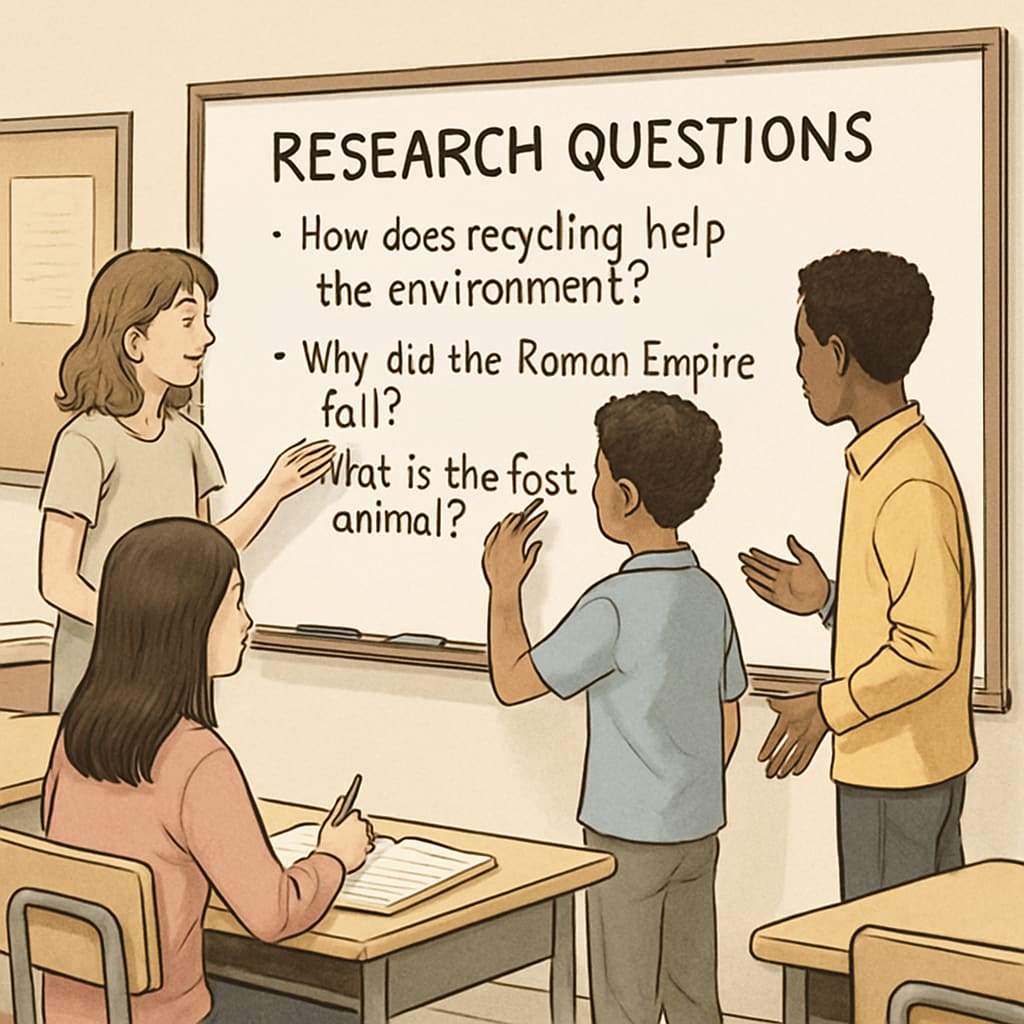Crafting meaningful research questions is a fundamental skill in K12 education, serving as the cornerstone for developing critical thinking, inquiry-driven learning, and academic growth. Both teachers and students can benefit immensely from mastering the art of formulating questions that inspire exploration and deeper understanding. In this article, we delve into why research questions matter and provide actionable methods to help educators and learners refine this essential skill.
Why Research Questions Matter in K12 Education
Research questions are more than just a starting point—they shape the entire learning journey. A well-crafted question encourages students to think critically, analyze multiple perspectives, and engage in problem-solving. For teachers, guiding students in question formulation fosters a classroom environment filled with curiosity and purposeful learning. For example, instead of asking, “What are the causes of climate change?” a more impactful question might be, “How do individual choices contribute to global climate change?” This helps students connect broader issues to personal actions.

Steps to Crafting Effective Research Questions
To ensure research questions are meaningful and effective, educators can use the following steps:
- Start with broad topics: Encourage students to explore general areas of interest before narrowing their focus. For instance, a student interested in technology might begin with “Artificial Intelligence” and refine it to “How does AI impact job markets in different industries?”
- Apply the SMART criteria: Research questions should be Specific, Measurable, Achievable, Relevant, and Time-bound. This ensures that the inquiry is both feasible and impactful.
- Incorporate open-ended phrasing: Avoid questions that lead to simple “yes” or “no” answers. Open-ended questions such as “What factors influence consumer behavior in online shopping?” invite deeper exploration.
- Test for clarity and focus: Teachers and students should review questions to ensure they are clear, concise, and free of ambiguity.
Additionally, using peer feedback and brainstorming sessions can help refine and improve the quality of research questions.
Teaching Students to Formulate Research Questions
Helping students master this skill requires structured guidance and practice. Here are some strategies educators can use:
- Model the process: Demonstrate how to transform a broad topic into a focused research question step-by-step.
- Use real-world examples: Show students examples of research questions from academic studies or news articles to illustrate what makes them effective.
- Encourage reflection: Have students evaluate their own questions by asking, “Does this question spark curiosity? Does it lead to deeper learning?”
- Integrate group activities: Collaborative exercises such as question-building workshops can foster idea sharing and creativity.

By empowering students to formulate their own questions, educators enable them to take ownership of their learning and engage more deeply with academic material.
Benefits of Crafting Strong Research Questions
When research questions are thoughtfully crafted, they yield numerous benefits for both students and teachers:
- Enhanced critical thinking: Students learn to analyze complex issues and break them into manageable parts.
- Improved academic outcomes: Clear, focused questions lead to more structured and insightful research projects.
- Lifelong inquiry skills: The ability to ask meaningful questions is a skill that translates beyond the classroom into career and personal life.
For educators, teaching this skill builds a classroom culture of curiosity, where students feel empowered to explore topics deeply and independently.
Conclusion
Mastering the art of crafting research questions is a vital step in fostering critical thinking and inquiry-based learning in K12 education. Teachers and students alike can benefit from understanding the methods and strategies shared in this article. By asking the right questions, we unlock the door to academic growth, meaningful exploration, and a lifelong love of learning.
For more information on crafting research questions, consult resources such as Educational Research on Wikipedia or Education on Britannica.
Readability guidance: This article uses short paragraphs, clear headings, and lists to ensure easy comprehension. It incorporates transition words to improve flow and limits passive voice usage to enhance engagement.


